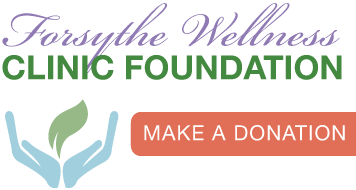While cancer treatment often focuses on removing or controlling tumors, one subtle but powerful factor in recovery is frequently overlooked—hormonal balance. Hormones act as the body’s chemical messengers, guiding energy use, immune function, emotional stability, and even cellular repair. Yet, many survivors remain unaware of how treatment can disrupt these rhythms. By restoring hormone harmony naturally, patients may unlock deeper healing potential, supporting not only physical recovery but also resilience, clarity, and vitality long after treatment ends.
Understanding Hormonal Changes After Cancer Treatment
Cancer treatments can save lives, but they often place hidden stress on the body’s endocrine system—the network of glands that produces and regulates hormones. Chemotherapy, radiation, and certain surgeries may damage hormone-producing tissues or disrupt the brain’s signaling pathways, altering the body’s natural rhythms. Even targeted therapies can shift how hormones are made, used, or broken down. These changes may not appear immediately; they can develop slowly, influencing sleep, mood, metabolism, and immune response. Some survivors notice subtle signs—unexplained fatigue, temperature changes, or difficulty concentrating—without realizing hormones are involved. Understanding these shifts is the first step toward gentle, natural restoration that supports the body’s innate healing intelligence.
The Integrative Oncology Perspective on Hormone Support
In integrative oncology, hormone support is not simply about replacing what’s missing—it’s about guiding the body back to its natural state of balance. This approach recognizes that hormones respond to more than just medication; they are influenced by nutrition, stress, inflammation, sleep, and even mindset. By combining conventional testing with holistic assessments, practitioners can uncover the root causes of imbalance, such as hidden nutrient deficiencies or chronic stress patterns. Treatments may include gentle, targeted therapies that work with the body’s rhythms rather than forcing change. The goal is to create an environment where the endocrine system can recover naturally, reducing strain on the body while enhancing overall vitality.
Natural Strategies for Supporting Hormones After Cancer Treatment
Supporting hormones after cancer treatment requires a gentle, whole-body approach that addresses the underlying systems influencing endocrine health. These strategies aim to work in harmony with the body’s natural healing capacity rather than override it.
- Prioritize phytonutrient-rich foods Deeply colored vegetables, berries, and leafy greens provide antioxidants that protect hormone-producing glands from oxidative stress. Cruciferous vegetables like broccoli and kale also help the body metabolize estrogen more efficiently.
- Include healthy, anti-inflammatory fats Omega-3 fatty acids from sources such as flaxseed, walnuts, and wild-caught fish support hormone production at the cellular level and reduce inflammation that can disrupt hormonal signals.
- Support adrenal recovery with gentle routines The adrenal glands play a key role in cortisol balance. Light stretching, slow morning rituals, and avoiding excessive caffeine can help them recalibrate after the strain of cancer treatment.
- Use mindful movement to regulate hormone rhythms Practices like qigong, tai chi, and restorative yoga reduce cortisol surges, improve circulation, and enhance the body’s ability to produce and balance hormones naturally.
- Stabilize blood sugar through balanced meals Consistent energy from meals that pair protein, fiber, and healthy fats can prevent insulin spikes, which in turn supports stable estrogen, progesterone, and testosterone levels.
- Leverage herbal allies with professional guidance Adaptogens such as ashwagandha, holy basil, and rhodiola may help the body respond to stress and improve hormone resilience. However, these should be selected carefully to match each person’s health history.
- Nurture restorative sleep Adequate, high-quality sleep allows for optimal production of hormones like melatonin and growth hormone, which are vital for repair and immune function.
- Create a low-toxin living environment Reducing exposure to hormone-disrupting chemicals in plastics, cleaning products, and personal care items can help the endocrine system recover without added stress.
Therapies in Integrative Cancer Care That Support Hormone Balance
Integrative cancer care offers therapies designed to protect and restore hormonal health while supporting overall recovery. Low-dose chemotherapy (IPT) minimizes damage to hormone-producing glands compared to conventional doses. Bio-oxidative therapies enhance oxygen delivery to cells, reducing inflammation that can disrupt endocrine function. Individualized homeopathic remedies may encourage the body’s natural hormone regulation, while alkaline water therapy supports optimal pH for cellular communication. Each therapy works in a way that complements the body’s own healing processes, aiming to reduce strain on the endocrine system and promote a steady return to hormonal harmony.
Lifestyle Coaching for Hormone Wellness Post-Cancer
Lifestyle coaching in the post-cancer phase goes beyond diet and exercise—it helps patients reshape daily habits to create an internal environment where hormones can thrive. This often includes guidance on sleep timing to align with natural circadian rhythms, personalized stress-reduction practices, and meal planning that stabilizes blood sugar. Coaches may also help patients identify hidden lifestyle disruptors, like irregular eating schedules or exposure to artificial light at night, that quietly strain hormone balance. By making small, consistent adjustments and tracking progress over time, patients can strengthen their body’s ability to regulate hormones naturally, supporting both physical recovery and emotional stability.
The Overlooked Link: Hormones, Emotions, and Recovery Outcomes
Hormones and emotions are deeply connected, each influencing the other in ways that can shape recovery outcomes. Cortisol, estrogen, testosterone, and thyroid hormones all affect mood, motivation, and mental clarity—while emotional states like chronic worry or unresolved grief can disrupt hormonal rhythms. After cancer treatment, this two-way relationship can become even more sensitive. Elevated stress hormones may slow tissue repair, while imbalanced sex hormones can influence resilience and optimism. Recognizing this link allows for targeted strategies—such as guided imagery, breathwork, or gentle counseling—that simultaneously calm the mind and restore hormonal harmony, creating a more supportive environment for the body’s healing processes.
Conclusion
Balancing hormones naturally after cancer treatment is not just about feeling better—it’s about creating the right internal conditions for the body to heal, regenerate, and thrive. By combining nutrition, stress management, targeted therapies, and mindful lifestyle changes, cancer survivors can support their endocrine system in gentle yet powerful ways. Every person’s recovery path is unique, and a personalized approach ensures safety and effectiveness. To explore integrative strategies tailored to your needs, visit us or call (877) 789-0707 to schedule an appointment with our team. Your body’s natural balance can be restored—one thoughtful step at a time.






